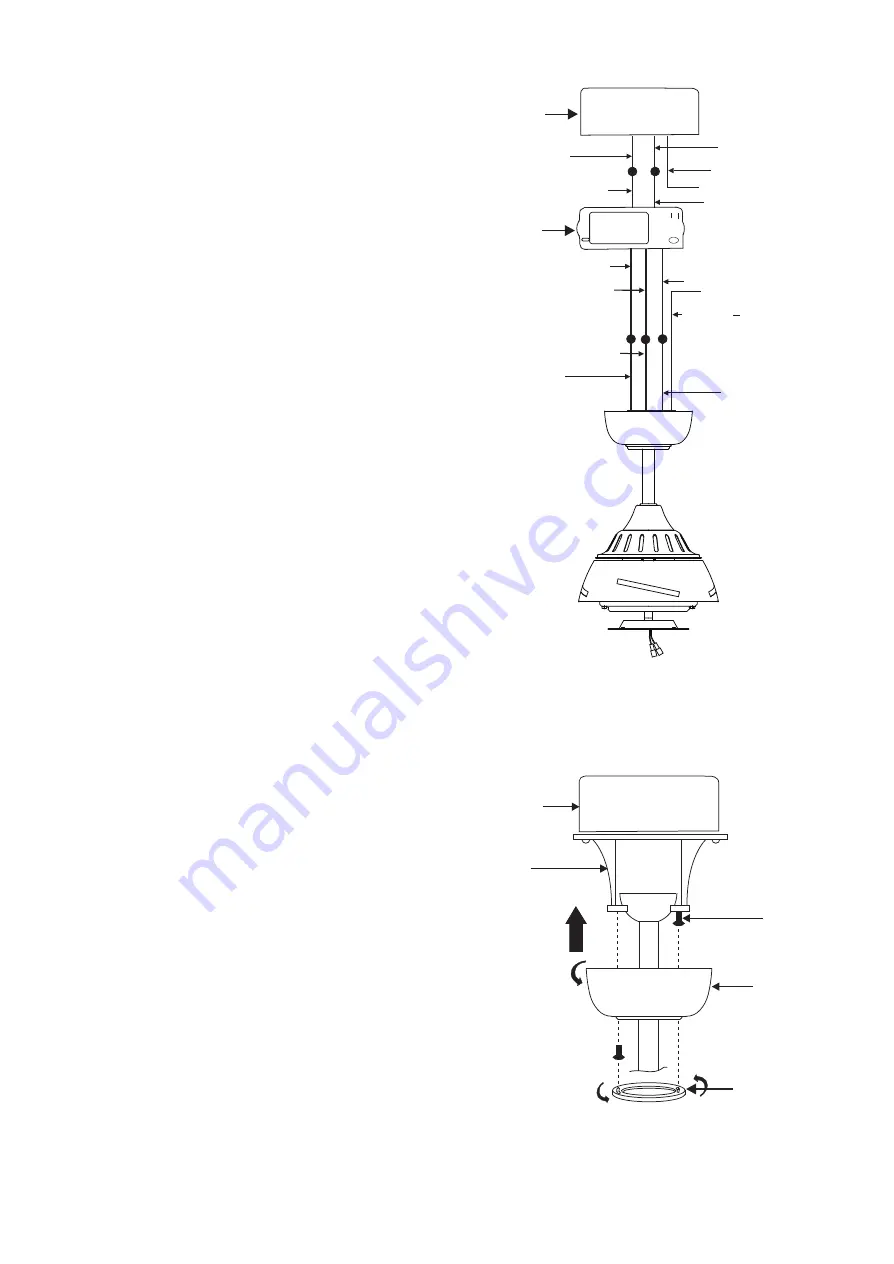
6
Step 3.
(Figure 12) Receiver to House Supply
Wires Electrical Connections: Connect the
black (hot) wire from the ceiling to the black
wire marked "AC in L" from the receiver.
Connect the white (neutral) wire from the
ceiling to the white wire marked "AC in N"
from the Receiver. Secure the wire connections
with the plastic wire nuts provided.
Step 4.
(Figure 12) If your outlet box has a
ground wire (green or bare copper) connect it
to the fan ground wires; otherwise connect the
hanging bracket ground wire to the mounting
bracket. Secure the wire connection with a
plastic nut provided. After connecting the
wires, spread them apart so that the green and
white wires are on one side of the outlet box
and black and blue wires are on the other side.
Carefully tuck the wire connections up into the
outlet box.
Note:
Fan must be installed at a maximum
distance of 30 feet from the transmitting unit
for proper signal transmission between the
transmitting unit and the fan's receiving unit.
8. FINISHING THE
INSTALLATION
Step 1.
Tuck connections neatly into ceiling
outlet box.
Step 2.
Slide the canopy up to hanger
bracket and place the key hole on the canopy
over the screw on the hanger bracket, turn
canopy until it locks in place at the narrow
section of the key holes.
Step 3.
Align the circular hole on canopy with
the remaining hole on the hanger bracket,
secure by tightening the two set screws.
Note:
Adjust the canopy screws as necessary
until the canopy and canopy cover are snug.
(Fig. 13)
Warning:
Make sure tab at bottom of hanger
bracket is properly seated in groove of
hanger ball before attaching canopy to
bracket. Failure to properly seat tab in groove
could cause damage to electrical wiring.
Figure 12
Figure 13
White (neutral)
White (neutral)
Green or bare
copper (ground)
White ("AC IN N")
White ("to motor N")
Ground
(green)
(Connect to
ground wire on
hanger bracket
if no house
ground wire
exists.)
Outlet box
Black (hot)
Black ("AC IN L")
Black ("to motor L")
Receiver
Blue (for light)
Blue (for light)
Black (motor)
Outlet box
Hanger
bracket
Canopy
Canopy cover
Screws






























